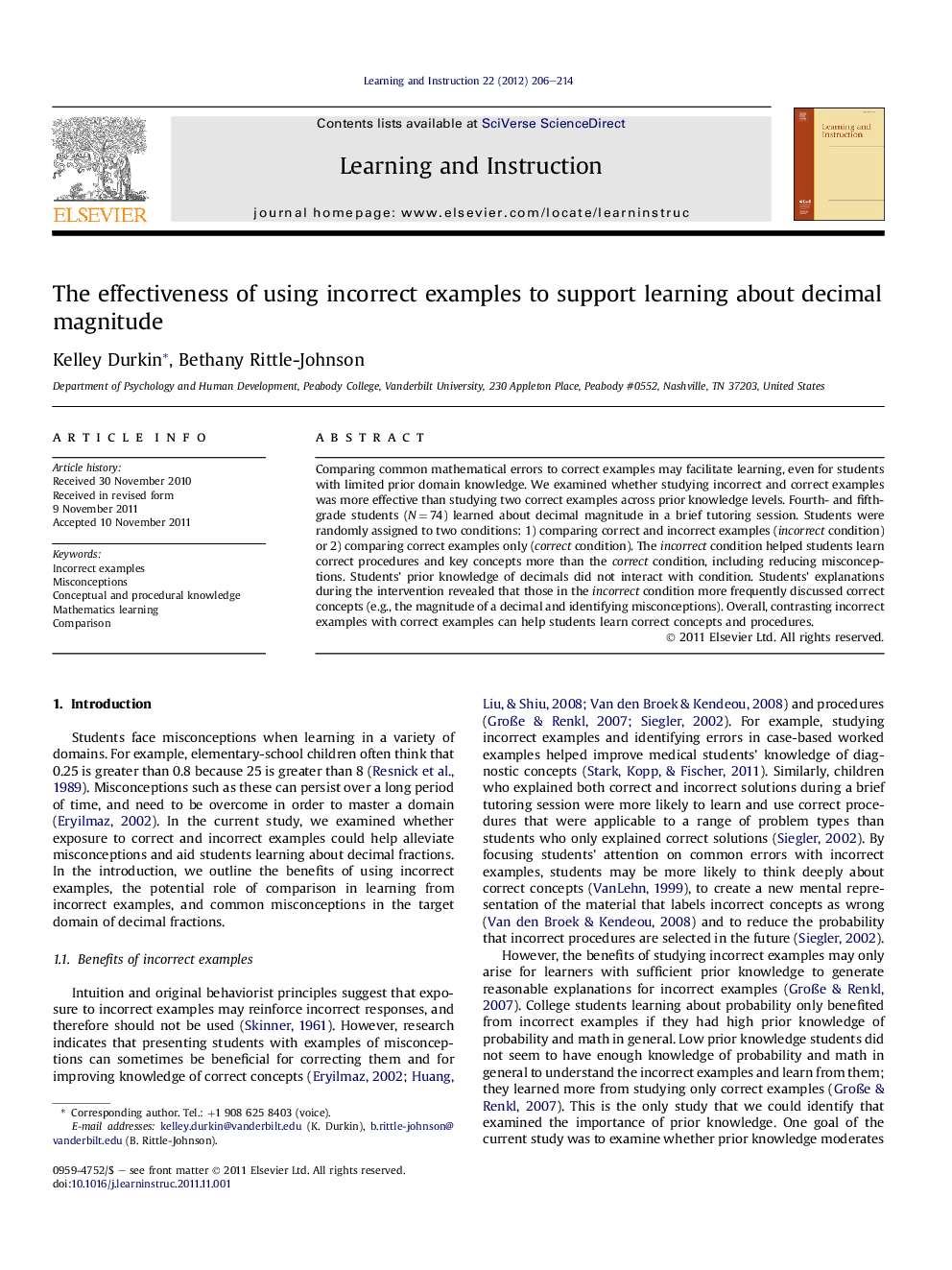| Article ID | Journal | Published Year | Pages | File Type |
|---|---|---|---|---|
| 365694 | Learning and Instruction | 2012 | 9 Pages |
Comparing common mathematical errors to correct examples may facilitate learning, even for students with limited prior domain knowledge. We examined whether studying incorrect and correct examples was more effective than studying two correct examples across prior knowledge levels. Fourth- and fifth-grade students (N = 74) learned about decimal magnitude in a brief tutoring session. Students were randomly assigned to two conditions: 1) comparing correct and incorrect examples (incorrect condition) or 2) comparing correct examples only (correct condition). The incorrect condition helped students learn correct procedures and key concepts more than the correct condition, including reducing misconceptions. Students’ prior knowledge of decimals did not interact with condition. Students’ explanations during the intervention revealed that those in the incorrect condition more frequently discussed correct concepts (e.g., the magnitude of a decimal and identifying misconceptions). Overall, contrasting incorrect examples with correct examples can help students learn correct concepts and procedures.
► Incorrect examples led to higher procedural knowledge at immediate posttest. ► Incorrect examples led to higher conceptual knowledge at delayed posttest. ► Incorrect examples led to fewer misconception errors at delayed posttest. ► Incorrect examples encouraged students to discuss correct concepts.
